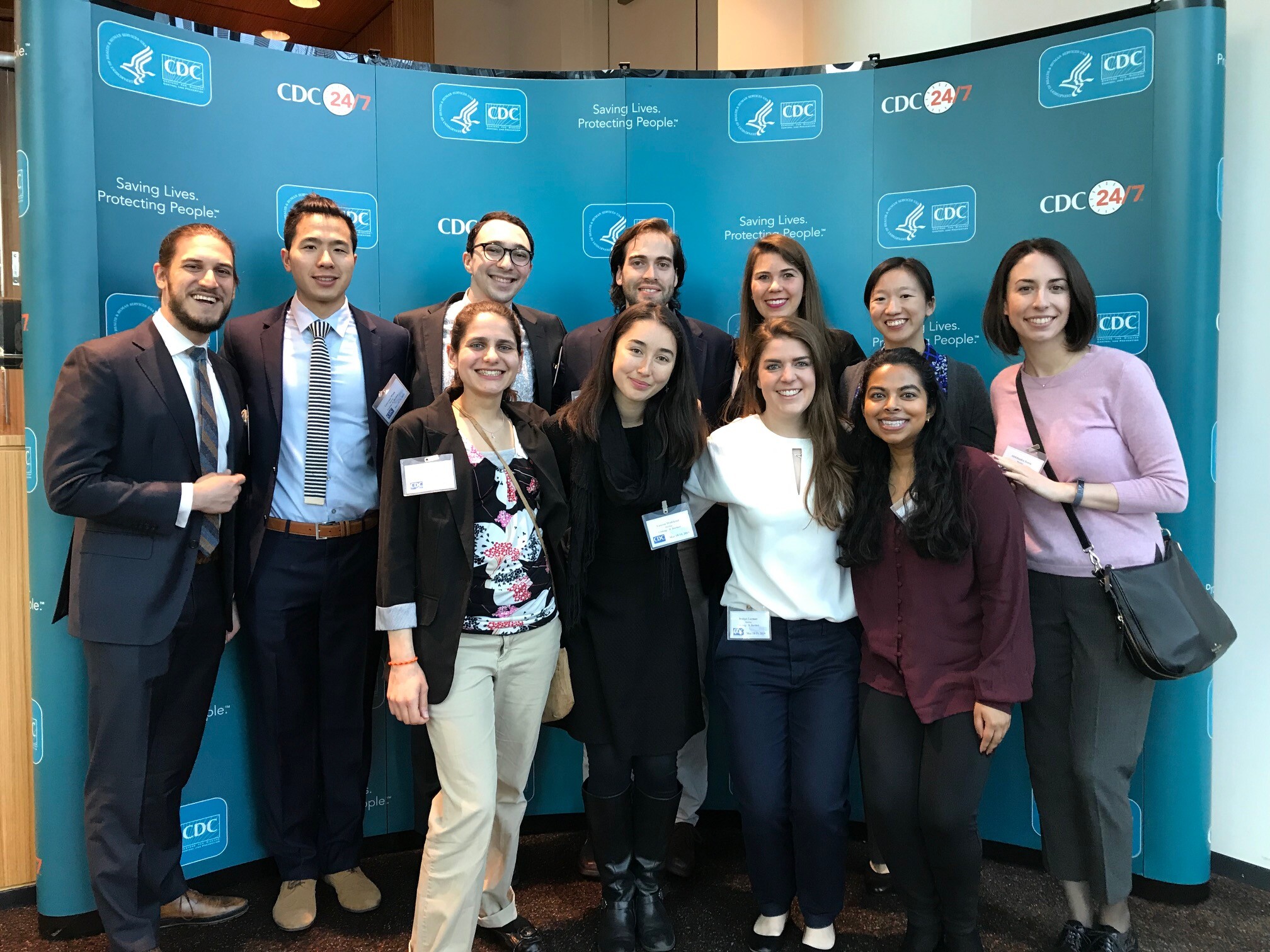The International Biomedical Research Alliance recently sponsored eleven scholars in the NIH Oxford-Cambridge Scholars Program to attend a career development field trip at the Centers for Disease Control (CDC) in Atlanta, Georgia. The inspiration for the visit to investigate careers at the CDC originated with Dr. Anne Schuchat, Principal Deputy Director of the CDC and 2017 Lasker Lessons in Leadership keynote speaker. The two-day comprehensive experience offered meetings, tours, lectures and a Q&A session with experts from different fields of public health, health equity and community health.
On day-one, the scholars met with two Epidemic Intelligence Service (EIS) officers. The Scholars learned about their work in Mongolia, China to implement practices to address the rise of anti-microbial resistance in health care settings and at the Boston, Massachusetts health department integrating local data with federal resources. The Scholars found the work of EIS officers intriguing and exciting. Aleksandra Ivovic, a third year PhD student, commented how impressed she was by how many senior level people took time out of their day to explain their work to the scholars, especially in regards to the EIS training program.
The Scholars met with Dr. Anne Schuchat and Dr. Becky Bunnell, who is the Director of the CDC Office of Science. The discussion covered a range of topics including career trajectories, CDC recruitment, the differences between CDC and NIH mandates, the diverse programs they implement, as well as their collaborations with non-profits. Over lunch, the scholars discussed how the CDC is working to eliminate new HIV cases over the next decade. They learned about the ways in which the CDC is using data science to analyze the emergence of new infections. This conversation led to the discussion about increasing the number of data scientist positions and how it would uniquely effect the emergence of new HIV infections and understanding their outcome.
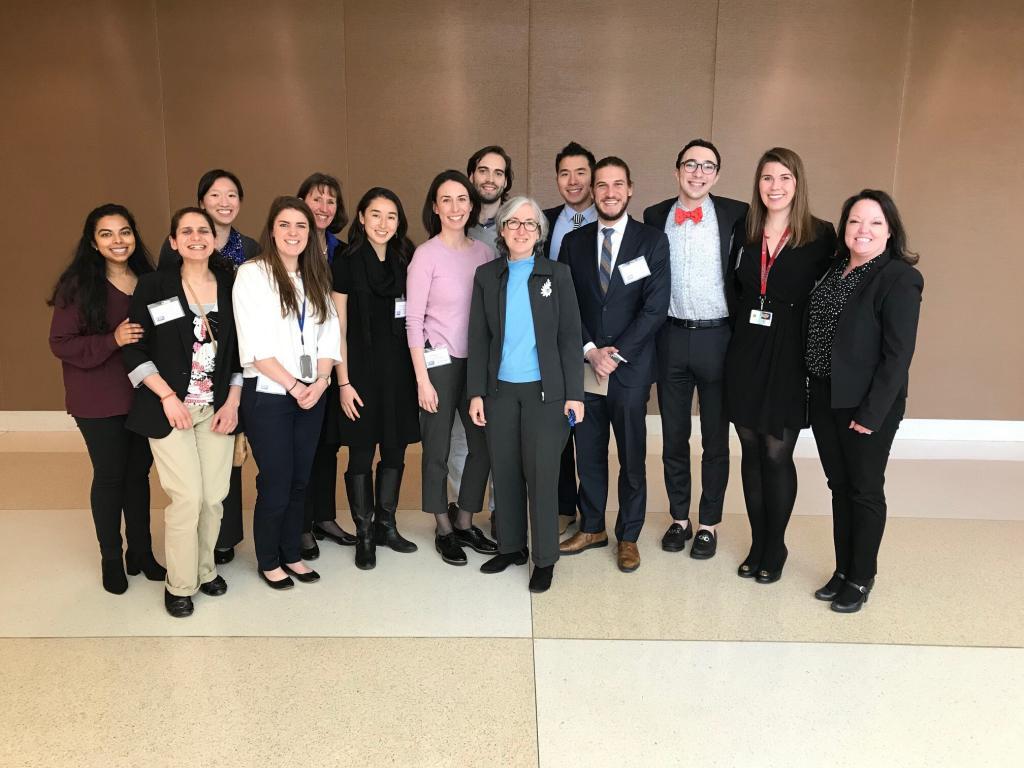
Following lunch, the scholars toured both the Emergency Operations Room and Biotechnology Core Facility labs. “Touring the Emergency Operations Center, the epicenter of the CDC’s strategic response to the 2009 pandemic influenza strain that has been a focus of my research, illuminated the broader societal implications of my work” said first year MD-PhD scholar Matt Múle. Two breakout meetings followed where the scholars were presented with the choice to converse with many experts in different fields at the CDC. These individual meeting rotations encompassed two hours, allowing Scholars insight into injury, EIS, fellowship opportunities, viral pathogen outbreaks, vaccine development, and Immunization to name a few. Lawrence Wang, a second year MD-PhD student felt that the most valuable part of the trip was getting to meet and chat with the subject matter experts from various departments and rotating between them, including the work they do and their day-to-day experiences.
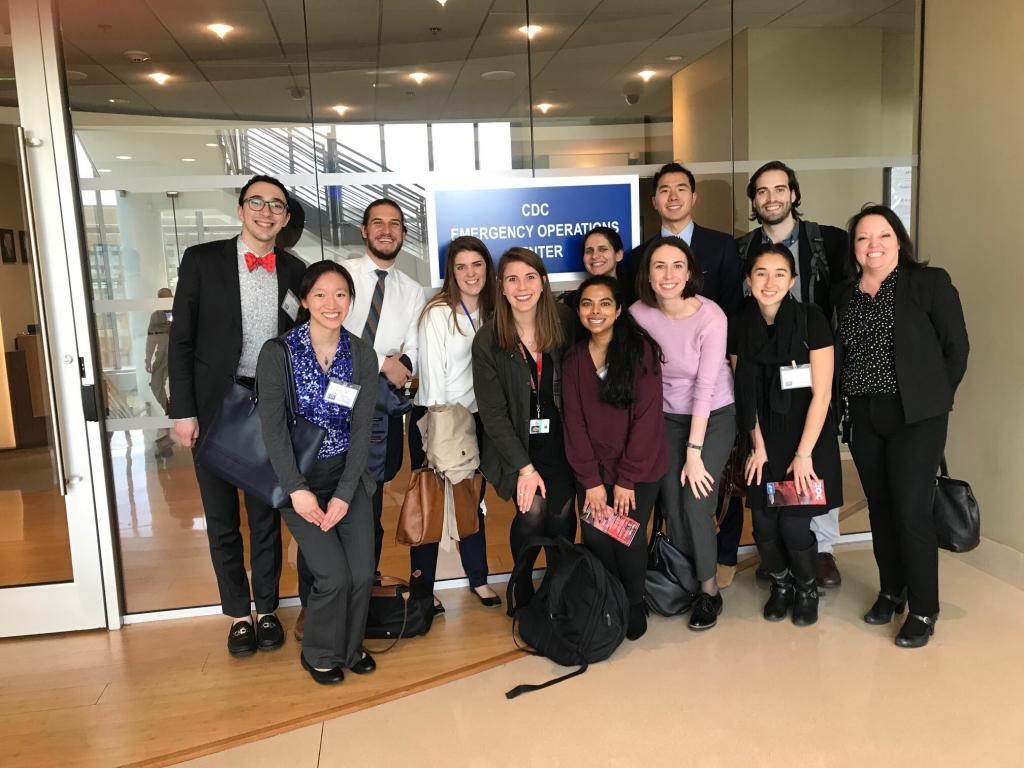
On day-two, the NIH OxCam scholars were invited to attend talks from the Office of Technology, reviewing how developers and engineers work with teams at the CDC to develop tools and software and another about how the CDC executes their role as informers for evidence-based policy changes. Key challenges discussed addressed how the CDC is working to recruit candidates who have personal insights on living in rural communities and how to find solutions based on these experiences and those who face health related issues, like the opioid crisis.
“One of the things I am grateful for includes how the Alliance organizes to show us multiple ways to think about a ‘science’ career and applying your training to think about world challenges” remarked fourth year PhD student Sam Katz. “This visit allowed me to explore new opportunities, learn about careers, and see how my research could be applied at a place like the CDC.”
To close out the CDC experience, the scholars attended an “all hands meeting” with visiting HHS Secretary Azar and CDC Director Robert Redfield. Secretary Azar discussed three critical areas of focus for the CDC: reducing the spread of HIV, containing the Ebola crisis in the DRC, and addressing the rise in vaccine skepticism amongst parents in the US. He also discussed the need to monitor the rise of e-cigarette use in teenagers and how it might serve as a jump off point to the consumption of combustible nicotine, such as cigarettes.
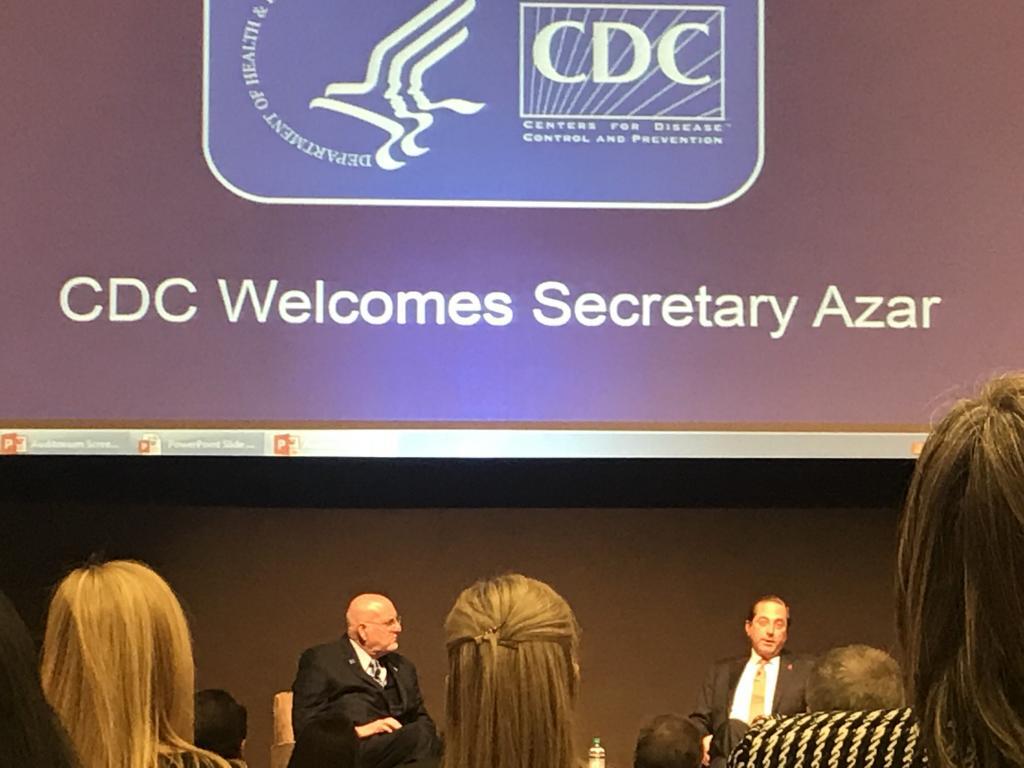
“Growing up in Atlanta and now working at another HHS agency, I thought I had an understanding of CDC’s mission and where it stands in terms of US healthcare. In visiting the CDC, however, I became aware of how each institute has a separate role to play in human health. In my mind, CDC represents the big picture for our nation’s health: it must gather the data and identify the problems that then scientists at the NIH use to inform and fund more basic and translational research projects. NIH then must work with the FDA for approval of any healthcare interventions. I see these agencies and institutes within HHS as a Venn Diagram. Each is separate but has overlapping goals to help improve human health” stated Hannah Mason, a second year MD-PhD student.
NIH OxCam faculty member Dr. Sonja Best, Chief, Innate Immunity and Pathogenesis Section at NIAID’s Rocky Mountain Laboratories, took great care in organizing the visit and was instrumental in working with the CDC and the scholars to develop a visit itinerary to meet their research and career interests. “Thanks to Dr. Sonja Best’s organization, we, as graduate students, are really fortunate to have gotten to meet in small groups with experts in different fields of public health, about health equity and community health” stated first year DPhil student Lauren Weekend.
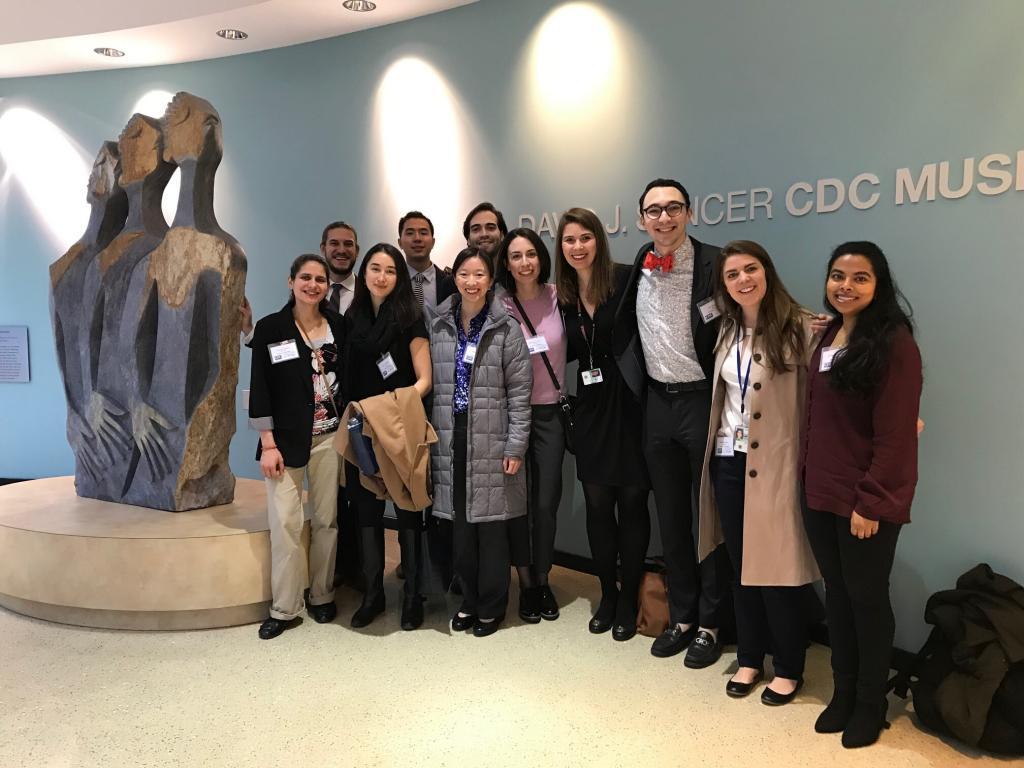
The Alliance looks forward to supporting more career-driven events and trips, like this CDC visit, to showcase the incredible work being performed in government, academia, industry, and business and to providing the scholars with the resources and accessibility to learn about them.

